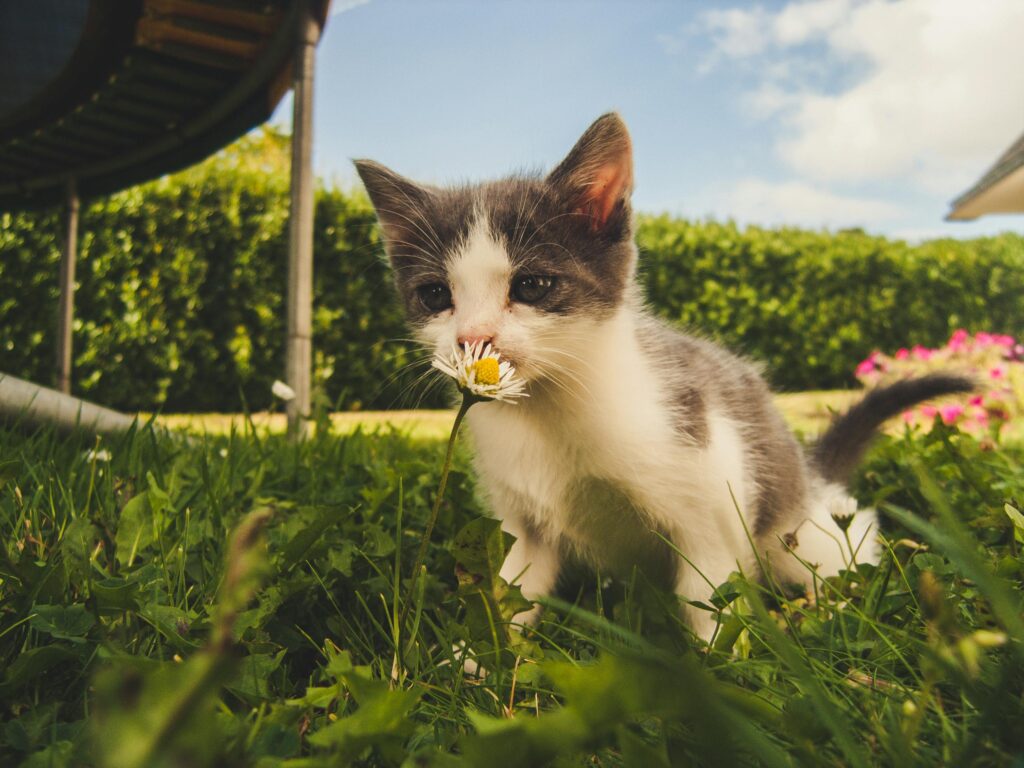
My cat’s breathing is rapid?
Cats with rapid breathing are often referred to as tachypnea. We’ll first determine the healthy breathing (breathing) frequency for cats. The average cat takes between 20-30 breaths each minute.
To determine your cat’s breathing rate, please take note of the amount of breath they take while sitting down. Each breath is comprised of breathing in (when your chest raises) as well as breathing out (when the chest sinks). It would ensure that your cat will not purr when you calculate the rate of its breathing. Sleeping rates are usually less than the normal breathing rate.
Record them with your phone or on a wristwatch to see the amount of breaths you take within that 30-second time. You’ll then multiply the number of breaths you have counted by 2 to determine the number of breaths your cat will take over a minute.
Causes of Fast Breathing in Cats
Cats who breathe fast could be a sign of a variety of illnesses or injuries and must be examined by your vet as quickly as possible. Possible causes include:
- Emotional distress
- Allergies
- Exertion
- Anemia
- Heart disease or failure of the heart
- Stress, pain, or shock
- Heat
- Heartworm
- Tumors of the chest and throat.
- Infections in the respiratory tract
- Insufficient oxygen levels in the blood (hypoxemia)
- A low level of red blood cells (anemia)
- Asthma
- Edema of the lungs (lungs full of fluid)
- Bleeding into lungs
- Foreign objects that have gotten stuck in the windpipes or other airway obstructions
- Trauma, exposure, or exposure to toxins and injury
- Pleural effusion (abnormal formation of fluids in the chest cavity)
Signs of Fast Breathing in Cats
If your cat’s breathing is quick, you could observe a variety of signs. These include:
- Trouble breathing
- The chest and belly are in motion with every breath.
- Breathing loudly
- Lethargy or fatigue
- Gagging
- Coughing
- The breath is open or slurred mouth (like the dog)
- Nostrils flaring
- The stomach can be rapidly rising and falling, or the chest
- Blue-colored gum
Suppose your cat appears to breathe faster than usual; look for the causes that could contribute to the problem and eliminate them. If, for instance, your cat is outdoors in the scorching sun or is experiencing stress or emotional anxiety, which is a contributing factor, relocate your cat to a cool, more peaceful area immediately. Be sure to give him plenty of water available to drink.
A dog’s breathing rate can be a measure of overall health. If your pet suddenly breathes quickly while asleep (consistently over 30 breaths in a minute), it could be an early indication of a heart problem. A lower rate may not be an issue if your cat is acting well.
Be aware that, for certain pets, your veterinarian may think that rates less than 30 breaths/minute are excessive and unnatural. Your cat’s appropriate pace of breathing must be evaluated on an individual basis.
The constant observation of your pet will reduce the amount of illness your pet has, reduce the likelihood of having to stay in a hospital for an extended period, and cut costs associated with the treatment for heart insufficiency.
What to Do If Your Cat is Breathing Fast
If your cat’s breathing has become constantly fast even after you have watched it for several hours, call our vet immediately so that they can advise on what next steps you should take. The cat might just require adjustments to its medications.
If you observe other indications in addition to a faster breathing rate or symptoms that have gotten worse, this might be a sign of a medical urgent. If this is the case, the vet will assess your cat’s health condition on your phone call and likely advise you to take your pet to AnimERge or a different hospital.
Diagnosis of Fast Breathing in Cats
The vet will determine the level and severity of your cat’s fast breathing and listen to their chests for signs of a heart murmur liquid in their lungs or a different cause. They will also look at the color of your cat’s gums. This will determine if your organs are receiving oxygen in the way they are supposed to.
A constant flow of oxygen stabilizes the cat. Blood tests are performed to identify underlying ailments, after which ultrasound and X-rays can be used to check the lungs and heart. In our clinic, we utilize our own in-house diagnostic equipment to grant the most precise diagnostics of any medical condition and tailor the treatment plan according to your animal’s specific needs.
Treatment of Fast Breathing in Cats
Alongside the continuous flow of oxygen, an IV catheter could be inserted to ensure that emergency fluids and drugs may be delivered through the intravenous route.
Of course, the treatment depends on the issue your cat is suffering from. If there is a pleural effusion, the fluid is removed from the chest and then analyzed. If there is concern about heart disease, an echocardiogram and X-rays can be done on the heart. The images can help determine the size of the heart and how it’s performing.
When your pet is experiencing trouble breathing, stay as calm as possible. If your cat is stressed, your veterinarian can provide some suggestions on how to travel.
If your cat’s breathing is rapid, then it may indicate an emergency. Be sure to get your cat checked by a certified vet at the first sign of fast breathing.
If your breathing becomes less rapid after a couple of minutes, then begin recording details about the time of the incident, including how it was going before and after, as well as the time this occurred. This information should be shared with your veterinary doctor. This kind of keen observation could help identify the possible causes and pinpoint the triggers.
